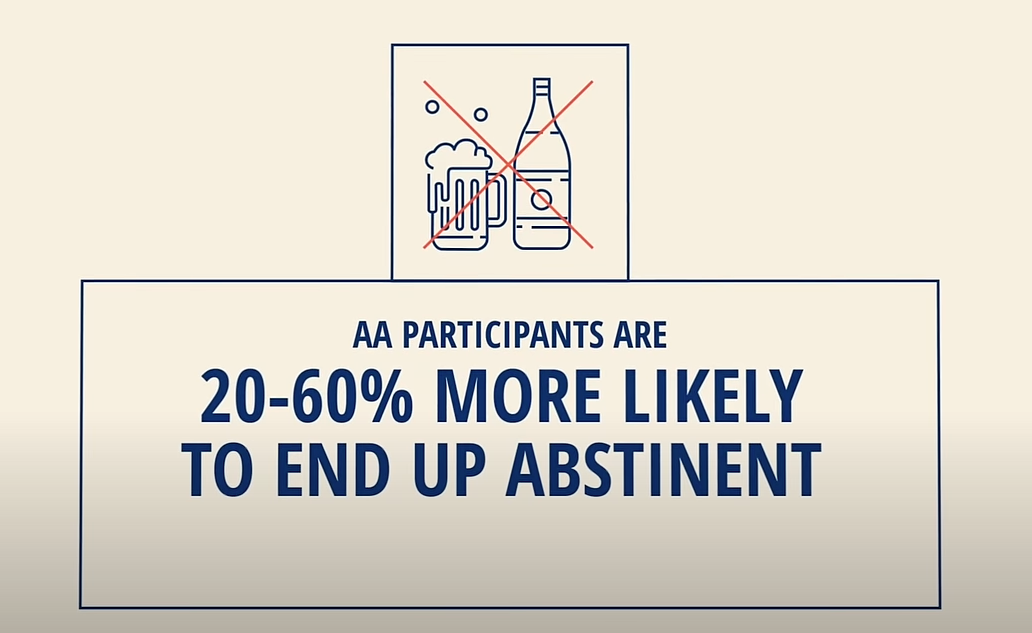Study on Alcoholics Anonymous (AA) and 12-Step Facilitation (TSF) Interventions By Dr. John F. Kelly (Harvard/MGH) and Dr. Keith Humphreys (Stanford/VA)
Study Overview
Published on March 11, 2020, in the Cochrane Database of Systematic Reviews, this landmark study synthesizes 27 clinical trials involving 10,565 participants to evaluate the effectiveness of AA and professionally delivered Twelve-Step Facilitation (TSF) programs for alcohol use disorder (AUD). The review compares AA/TSF to other evidence-based treatments like cognitive behavioral therapy (CBT) and motivational enhancement therapy (MET), focusing on abstinence, drinking intensity, healthcare costs, and long-term outcomes .
“AA is the closest thing in public health to a free lunch—it’s effective, cost-effective, and freely available” Dr. John F. Kelly
Key Findings
Superior Abstinence Rates
- Manualized TSF interventions (structured, clinician-led programs) achieved 21% higher rates of continuous abstinence at 12 months compared to CBT (RR 1.21, 95% CI 1.03–1.42) .
- At 36 months, AA/TSF participants reported 6.64% more abstinent days than those in non-TSF programs .
- 42% of AA/TSF participants remained abstinent after one year vs. 35% in other treatments .
Cost-Effectiveness
- AA/TSF programs reduced healthcare costs by $10,000 per patient annually compared to outpatient CBT .
- Four of five economic studies confirmed substantial cost savings due to reduced hospitalizations and emergency visits .
Long-Term Benefits
- AA’s peer-led, community-based model fosters sustained engagement, critical for managing AUD as a chronic condition . Participants attending AA post-treatment had lower relapse rates at 24–36 months .
Comparable Performance on Secondary Outcomes
- AA/TSF matched CBT and MET in reducing drinking intensity (e.g., drinks per day) and alcohol-related consequences (e.g., legal or health issues) .
Limitations and Certainty of Evidence
- While abstinence outcomes were supported by high-certainty evidence, results for drinking intensity relied on low- to moderate-certainty data due to attrition bias and small sample sizes .
Methodological Rigor
- Inclusion Criteria: Randomized controlled trials (RCTs), quasi-RCTs, and non-randomized studies comparing AA/TSF to other interventions .
- Analysis: Random-effects meta-analyses assessed outcomes like percentage days abstinent (PDA) and drinks per drinking day (DDD) .
- Funding: Primarily supported by the NIH and U.S. Department of Veterans Affairs, ensuring independence from industry bias .
Implications for Practice and Policy
Frontline Treatment Recommendation:
- Clinicians should prioritize manualized TSF interventions to maximize AA engagement and abstinence rates .
- Example: The Project MATCH TSF protocol, which links patients to AA meetings and sponsors, showed durable remission rates .
Economic Impact:
- Policymakers can leverage AA’s cost-saving potential to alleviate the $249 billion annual U.S. burden of AUD .
Global Accessibility:
- AA’s free, peer-led model is particularly valuable in low-resource settings, though availability varies by region .
Critical Analysis and Future Directions
Strengths:
- Largest-ever synthesis of AA research, addressing decades of debate about its efficacy .
- Demonstrated AA’s unique role in fostering long-term social support, a factor often missing in clinical therapies .
- Gaps:
- Limited data on non-manualized TSF and outcomes for marginalized populations (e.g., LGBTQ+, racial minorities) .
- Need for research on integrating AA with pharmacotherapies (e.g., naltrexone) .
Conclusion
This Cochrane review provides high-quality evidence that AA/TSF interventions are not only effective but also economically advantageous. As Dr. Kelly notes, “AA is the closest thing in public health to a free lunch—it’s effective, cost-effective, and freely available” . For clinicians, policymakers, and individuals battling AUD, this study underscores AA’s viability as a cornerstone of recovery strategies.
Access the Full Study:
